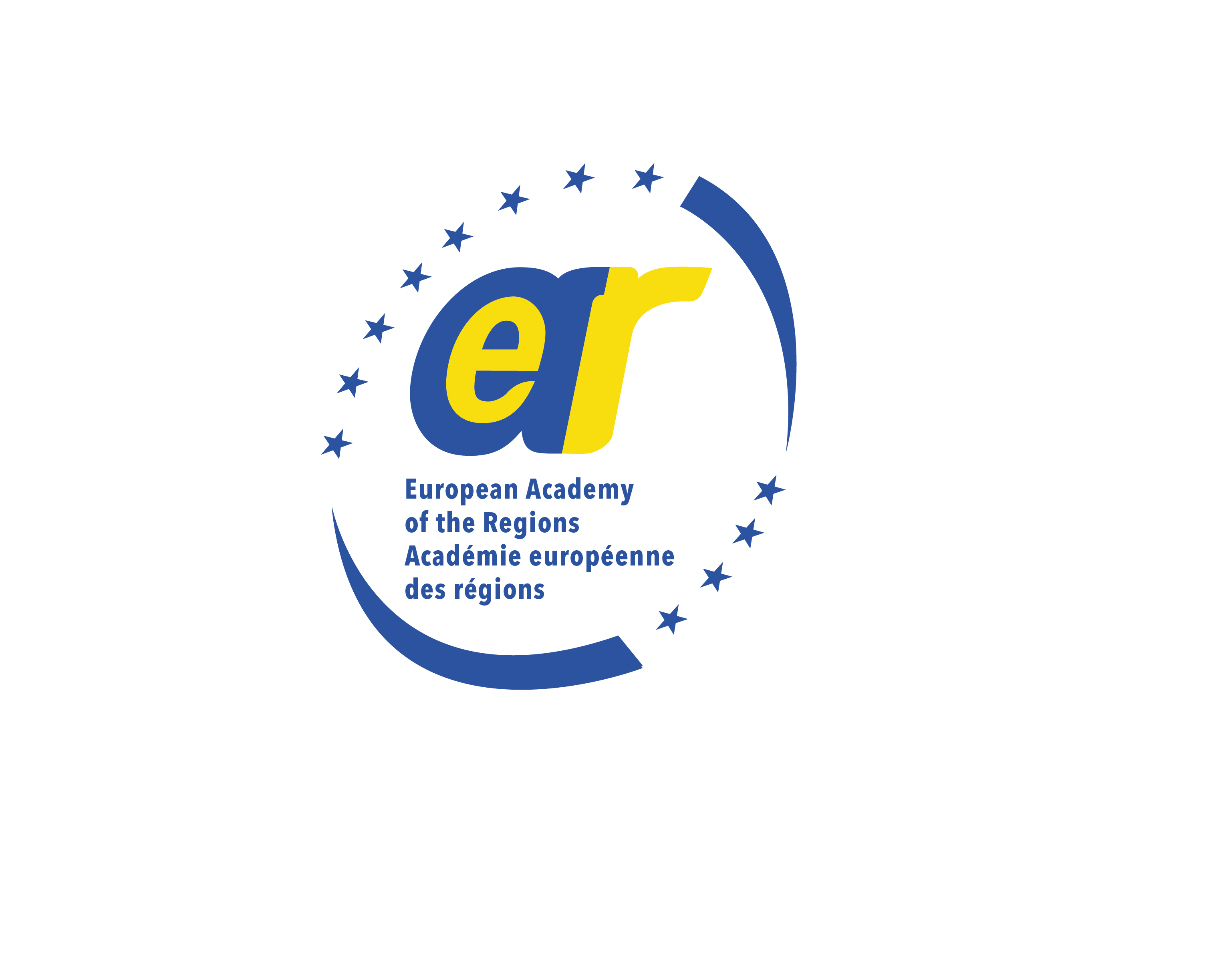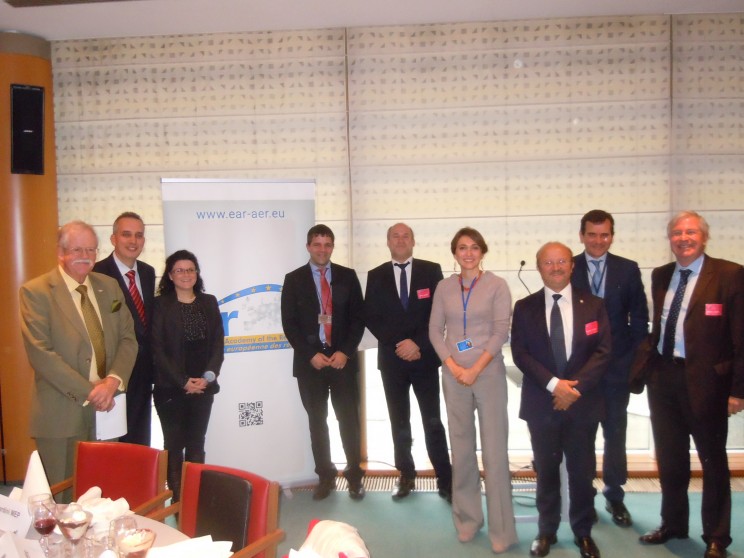The “Illicit Trade of Tobacco Products” was the subject of the second European Regional Debate, organised by the European Academy of the Regions. The lunch debate which took place in the venues of the European Parliament on Wednesday 14 October 2015 was hosted by the Italian Member of European Parliament Ms Elisabetta Gardini.
In his opening remarks EAR-AER President Mr Nelu Neacsu highlighted the scale of the problem of illicit trade in tobacco products, with EU and Member States losing €11 billion in tax and customs revenues per year.
Moderating the debate, Mr Louis Delcart, member of the EAR-AER Board of Directors, introduced the 3 presenters who addressed the various aspects of the Problem.
Mr Mario Antonelli, Vice-President of the Italian Federation of Tobacco Retailers (FTI), pointed out that illicit trade is not confined to smuggling of genuine products anymore but increasingly a problem of counterfeiting. Therefore, there is not only a loss of revenue for the legal retailers of tobacco products, which amounts to several billion Euros per year throughout the E.U.! but also an increased risk to health, due to the lack of quality control of the products delivered on the black market. Mr Antonelli warned also against the new measures against tobacco, rejected by the European Parliament but introduced in some Member States, imposing a package without any marketing indications. This plain packaging makes it even easier for organised crime to produce counterfeited products, enabling them to use one type of simple and cheap, standardised packaging for multiple markets. The speaker declared to be in favour of new tracking systems, and more means for the authorities in their fight against this huge phenomenon.
Mr Klaus Messerig, Group Security & Risk Manager of Imperial Tobacco Holdings, described the size and impact of the phenomenon. Of the seizures done by the customs authorities in Europe nowadays, 90% is counterfeit, whereas 10 years ago it represented only 25% – with seizures mostly containing genuine smuggled products. Seizures have increased by 500% compared to 10 years ago. Moreover, counterfeiting is nowadays done in the heart of Europe. Counterfeited products are not smuggled into Europe anymore, they are made on location. Workers are well paid. A recent discovery of an illegal factory in Eupen –German speaking Belgium- revealed that workers from Eastern Europe are paid up to €1500 per month, whereas their income in the home country amounts to €150/month. They were well treated with decent lodgings and even had their own sports accommodation. “The calculation is easy: a counterfeiting factory is break-even after 1 week of production and is in average discovered after 10 to 15 months! Until then the factory generates turnover of up to and above € 1 million per week. So the income for the mob is huge!”
Mr. Messerig mainly delivered two messages: Firstly, penalties are too low. When people responsible for counterfeiting are caught, they are condemned for tax evasion instead of being accused for organized crime. Secondly, Mr Messerig pleaded for public-private partnership in the fight against smuggling and counterfeiting of tobacco products. Specifically, the cooperation between the four largest manufacturers in the EU and OLAF under the EU Agreements has proven to be a success story that should be extended to other manufacturers in the EU. Producers as well as retailers have also means to contribute to the fight against illicit trade and should be able to combine their efforts with the national and European authorities.
The aspect of the fight against illicit trade by the authorities was addressed by Mr Enrico Martino, Director of the International Relations Central Directorate of the Italian Customs. He pleaded for increased control of the lines of all the businesses involved. The control should extend to all financial movements and property movements of groups, globalized among all national and international authorities. He also pleaded for a more co-ordinated and common approach between Member States and for more transparency. He pleaded for more joint investigation between police and customs all over Member States and even further. The fight is not anymore against clever smugglers, the fight is against organized crime.
In his intervention during Q&A, MEP Mr Roger Helmer focused upon two aspects. First, the very high taxes on tobacco products in the various Member States which explain counterfeiting and smuggling because of the existence of a real demand. The fight for ‘more health’ has actually resulted to the wide appearance of products with more damaging effects on citizens’ health. The second argument Mr Helmer brought forward was the new rule about the plain tobacco packaging, on which no logos and trademarks could appear anymore. The printing company was the last obstacle counterfeiters or smugglers had to face in their willingness to make counterfeited products inside Europe. They had to convince consumers that the outers they were printing were legal. With unique outers, they will be able to print themselves massively.
Not only the situation described was revealing, but also the measures proposed by the various parties were eye openers. Tobacco products are a touchy issue, and the profits made by large tobacco companies are immense, even with all the restrictions Europe imposes on them. But as long as it is a legal business, they should be protected against counterfeiters and smugglers, who damage society even more and who do not pay taxes, with the latter a precondition to enable this society to take proper decisions and measures for economic and social development.

